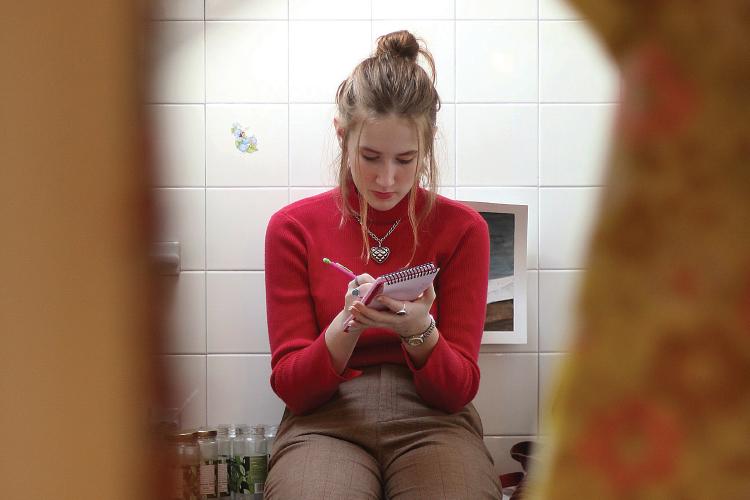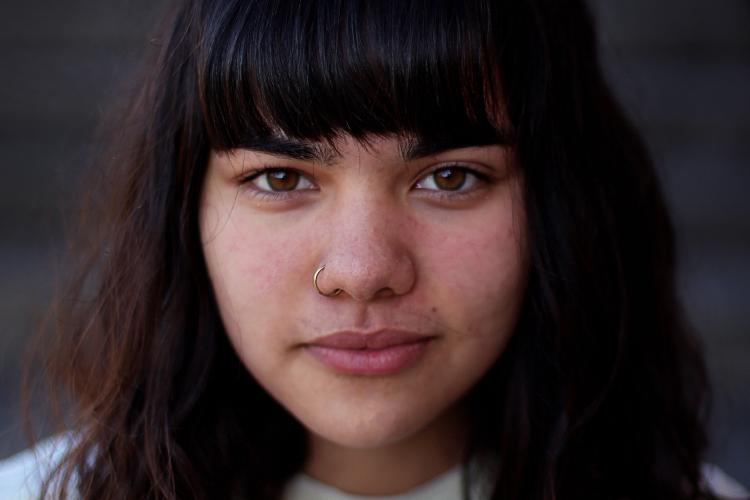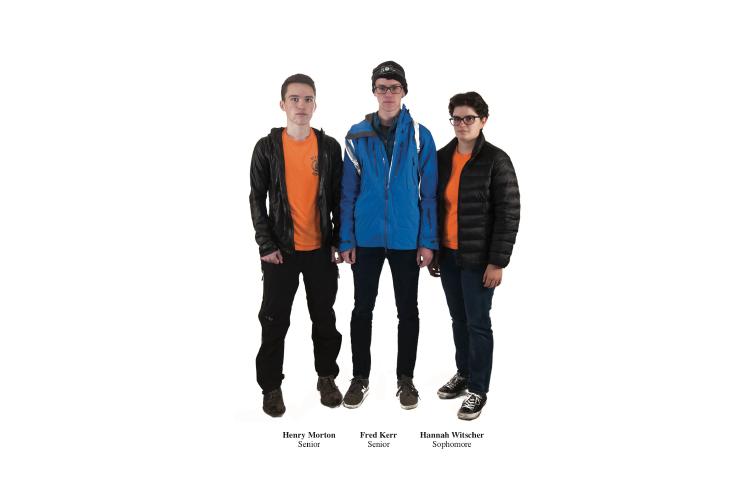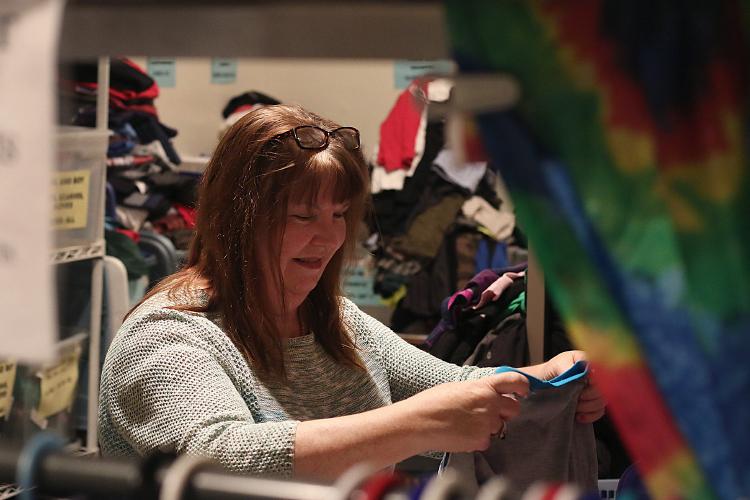
On the anniversary of the Nobel Prize being awarded to the Dalai Lama, Kunsel Lathsang was at a party being thrown by the Northwest Tibetan Cultural Association.
The party began with the singing of the Tibetan national anthem and the American national anthem. The gathering livens as people speak with one another, share food and dance.
Events like this one have given Lathsang a way to experience the culture of her Tibetan parents while in Portland.
Due to an increase in immigration and multiculturalism within the United States, a change in national identity is occurring. But spaces for cultural celebration still lack, and bicultural identities are not always evident.
As of 2015, 26 percent of minors in the United States live with at least one immigrant parent, twice as many as in 1990. Immigrants and their families are making up a larger percentage of America’s population.
According to the Pew Research Center, immigrants and the descendants of immigrants are predicted to represent 88 percent of America’s population growth by 2065.
While the scale of this change results in a shift in American national identity, individuals living between two cultures have always existed. For second-generation immigrants, maintaining one cultural identity while living in a nation dominated by another culture is nothing new.
In what The Atlantic calls “America’s whitest city,” it can be especially difficult to find communities of people who share similar cultural backgrounds within Portland.
Despite adversity, these communities have formed; people with shared culture have found spaces to gather together.
As they navigate the dynamics of Grant and of Portland as a whole, second-generation immigrant students carry a unique perspective because of the culture that has shaped their identities. At Grant, this part of students’ identities is often unintentionally hidden. Because it is so ingrained in who they are, it is something that shows through naturally or not at all.
The complexity of culture is a large part of their lives. Cultural communities outside of school allow for a connection unseen by peers. While not visible in all spaces, culture is entrenched in the identities of these students.
At a time of transition into adulthood, these students are finding ways to connect with their parents’ cultures outside of their households.
This connection has been innate within their home lives. The households they have been raised in provide them with a perspective that is naturally influenced by the culture of their parents.
Though these communities are not always visible, individuals within these cultures find ways to come together and connect. As they grow older, individual determination to experience their culture has drawn students out of their homes and into communities within Portland.
Kunsel Lathsang, Salvatore Estrada, Momoe Hunt, Sophia Paniagua and Samson Berhane are all American-born children of immigrant parents.
Despite an ever-present pressure to conform to American societal expectations, these five students have decided to celebrate their culture and find ways to connect with it in a city where cultural diversity is not always recognized.
. . .
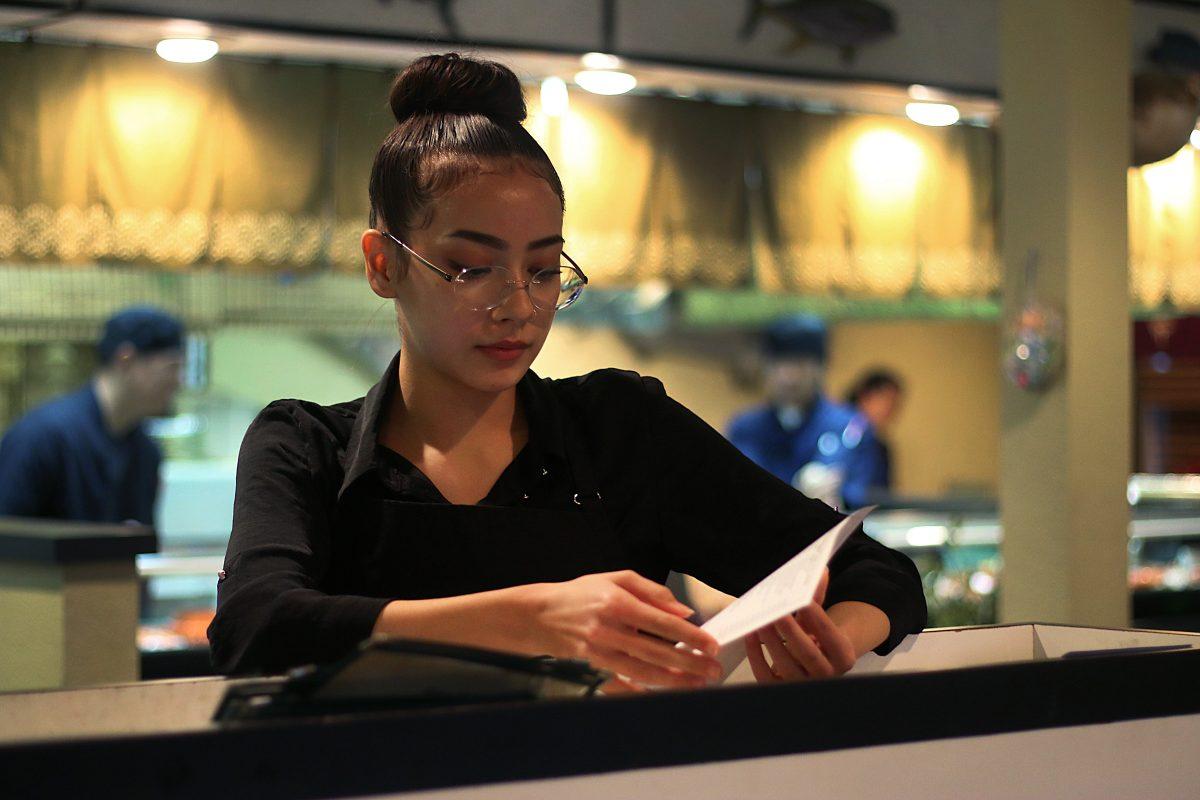
Momoe Hunt
On a Saturday evening in November, Momoe Hunt prepares for her shift at Ichidai, a Japanese restaurant in Southeast Portland. Arriving at work, she greets her boss, switching from English to Japanese when speaking with her Japanese co-workers. The job has given Hunt validation of her identity. Similar to Hunt’s household, the dynamic in the restaurant is built on Japanese culture.
Momoe Hunt was raised by her mother, Yukiko Hunt, an immigrant from Okayama, Japan. Her father is a white American, but because Hunt was raised by her mother, she confesses that, “It’s weird to then look in a mirror and realize I’m not full Asian. That’s one of the things that’s really confusing in my life that I always struggle with.”
Hunt grew up witnessing the discrimination that her mother faces as an immigrant in America. She sees it in the treatment and assumptions made about Yukiko Hunt by strangers. “People will talk to her like she is stupid, like she doesn’t understand,” says Hunt.
While at a restaurant with Hunt’s brother, Yukiko Hunt was told by strangers to stop speaking Japanese, saying, “This is America. We speak English here.”
Hunt’s mother is not an American citizen; she is here with a Green Card, a document allowing an immigrant to permanently live and work in the United States. “She has a life built here, so there’s no way she couldn’t get it,” says Hunt. But the regular card renewals mean that Yukiko Hunt must prove that she is American.
Despite this pressure to conform to American society, Yukiko Hunt continues to raise her children with Japanese values. “I think, in a way, I’m more conservative because of the way my culture is,” says Hunt.
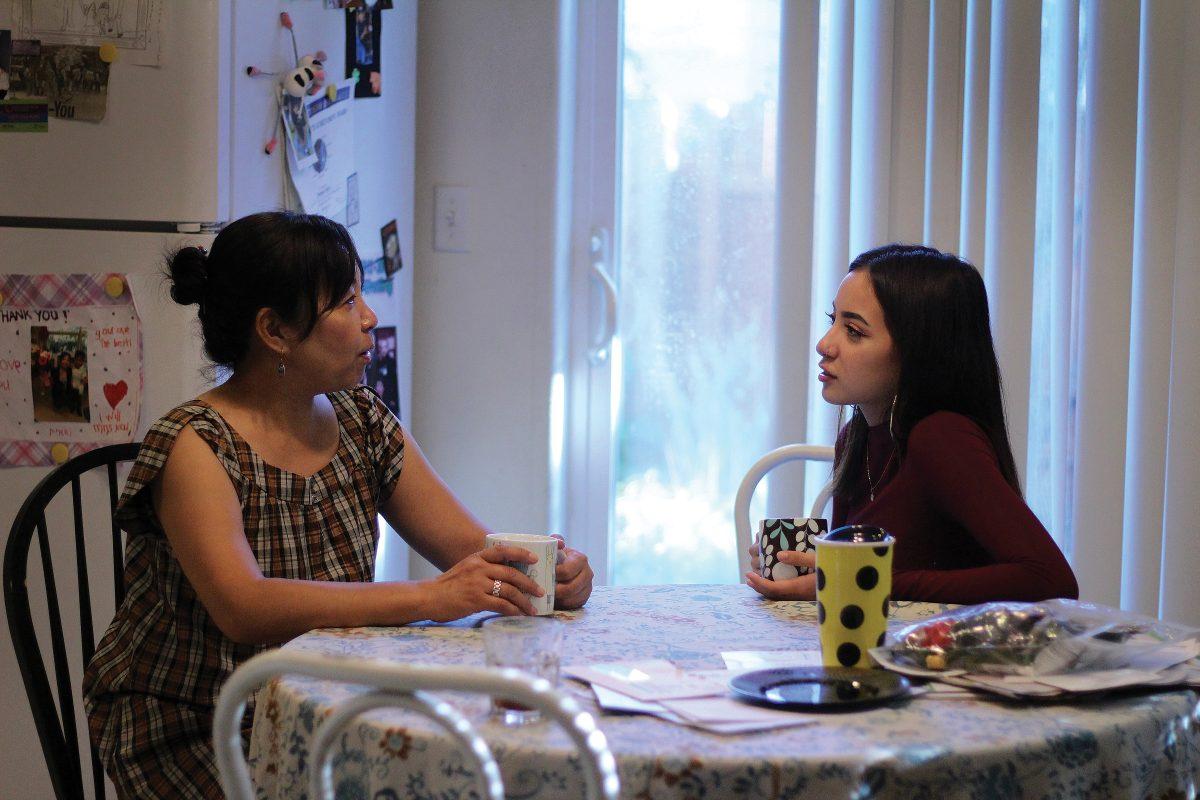
Because she was raised in a Japanese household, maintaining a connection to Japanese culture in America is easy for Hunt. “The culture itself is just ingrained in my lifestyle. I was just born and raised with it,” she says. “It’s … almost subconscious at this point.”
But Hunt consciously strives to surround herself with Japanese culture outside of her home. Though she has traveled to Japan several times through the Japanese Magnet Program and with her mother to see family, Hunt traveled to Japan with a different purpose during her sophomore year: to spend a semester attending a school in Okayama.
During the trip, Hunt felt recognized by those around her in a way she had never felt before in America. “I think that’s how we build trust (in America), by … giving parts of ourselves to other people. But there it was very different,” says Hunt. “I didn’t have to explain my life story for them to understand who I was. It didn’t matter where I came from.”
School in Japan gave Hunt freedom from many of the isolating aspects of her life in America. She did not worry about money, as she does in America, nor about trying to fit in or about her physical appearance. Hunt says she felt more “childlike” than she had in years.
Initially, Hunt felt that students did not have much independence in Japan. But the longer Hunt stayed, the more her ideas about independence changed. While Hunt describes the American mindset as, “I’m independent because I’m free,” she feels the Japanese idea of independence revolves around an emphasis on responsibility and hard work. “For me that’s more important,” she says.
Hunt felt her mindset was validated in Japan, but being raised by a Japanese mother in America gave Hunt beliefs and values she feels are not fully understood by American society. “If we have problems, we try to keep it just in our family members. (I) just try really hard to not be vocal … to other people,” says Hunt. “I try to do that the most I can, be really thankful, very very grateful for … all the opportunities I had, all the privileges I’ve been gifted with.”
Outside of her home, Hunt says, “I go out of my way to maintain (the connection to Japanese culture), you know. I try my best to try to speak in Japanese, to take part in the little celebrations that I can take part in.”
Hunt plans to one day move to Japan; it’s clear she feels most herself there. “I always looked at Japanese people like, these are my people, this is the community I want to be in,” she says.
Though she currently has dual-citizenship, Hunt will pick Japanese citizenship when the time comes, as Japan does not allow dual-citizenship for adults.“I know that I have a future there,” she says. “It’s destiny, almost.”
. . .
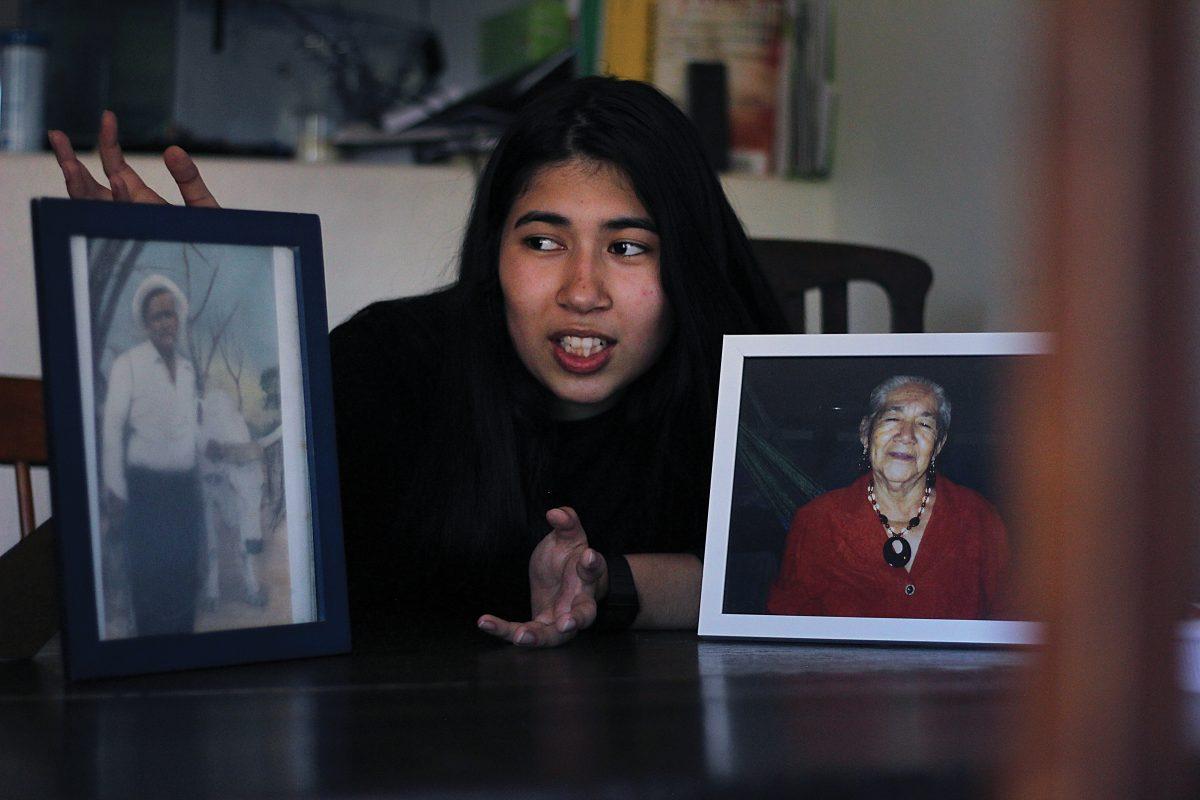
Sophia Paniagua
Sophia Paniagua adjusts her trumpet, getting ready to play. It is a Sunday in the fall, about a year since she began playing the instrument. With her church, Paniagua has learned to play Latin music, something not offered to her by the Grant band.
Paniagua’s family is from Espinas, a farm area in Usulutan — a department of El Salvador on the Pacific Coast. Through her church and music, Paniagua is able to immerse herself in her family’s culture within Portland.
Paniagua’s parents moved to Portland when they were in their twenties, due to civil war in El Salvador. “There wasn’t much hope for a good future,” says Paniagua. “Even now, most people are super poor. And my mom, she just wanted a better future.”
Paniagua’s father, Ramon Paniagua, moved to Portland in 1991, followed by Paniagua’s mother, Joanna Paniagua, in 1993, where they were introduced by Joanna Paniagua’s uncle.
Having grown up in an upper-middle-class household in Portland, Sophia Paniagua notices the differences between her life and the lives of her relatives in El Salvador. “When I go (to El Salvador), I’m like, ‘Wow, I have so many things compared to over here,’” says Paniagua. “To have the ability to go back, and be able to provide for people there who are less fortunate with new clothes, or new shoes and stuff, it just feels … really good.”
Rather than simply being a way for her to learn about her family’s roots, traveling to El Salvador is a way for Paniagua to understand more about the world through viewing other ways of life. “I’ve learned more about what it’s like to grow up in more difficult situations, and to have the courage to persevere,” says Paniagua.
While talking with her aunt during summer of 2017, Paniagua heard the story of a Salvadoran teenage farmer who bled to death because he was not able to treat a cut in his leg. “I complain about little things, and it just really makes you aware of how blessed you are to have so many resources available to you,” says Paniagua.
Because Paniagua does not travel to El Salvador frequently, she has found ways to integrate herself into the Salvadoran community within Portland.
The church that Paniagua has been a part of for the past seven years is largely attended by Salvadoran people, as well as people from countries around El Salvador, such as Honduras. Though her ideas about religion have evolved over time, Paniagua’s gratitude for the community has not diminished.
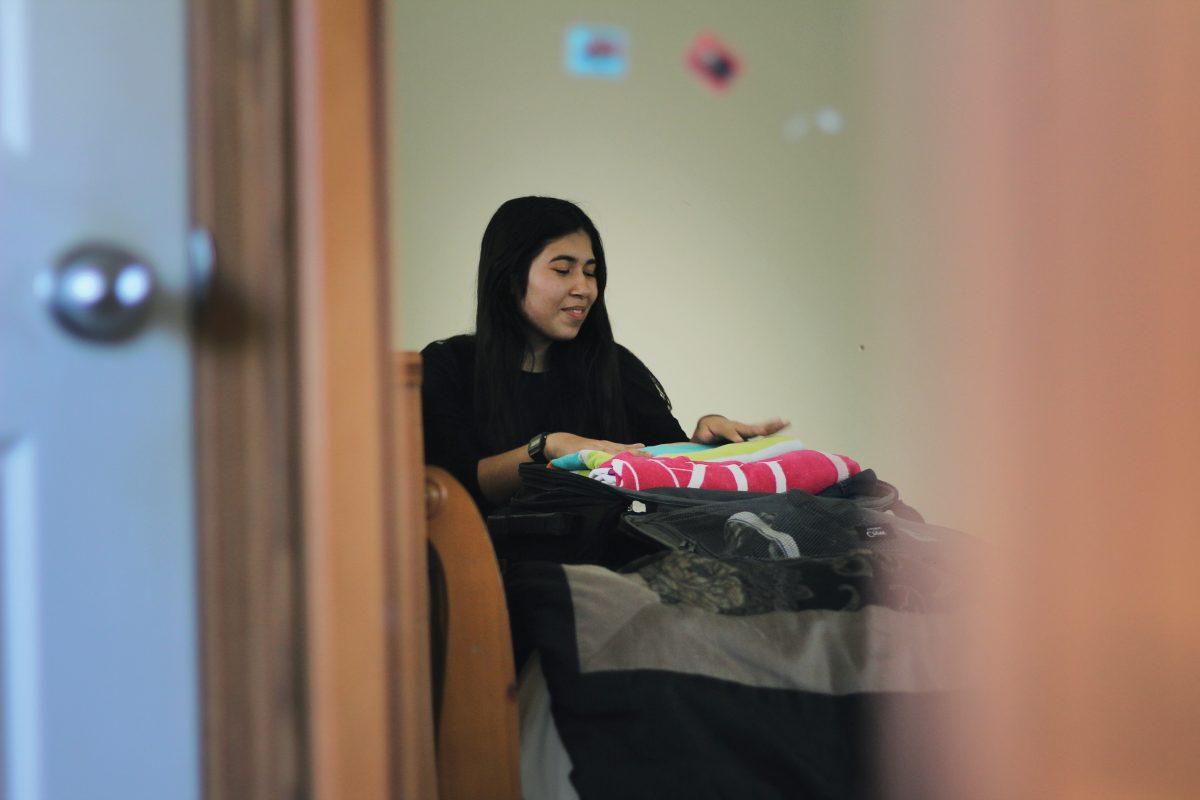
Paniagua’s parents have raised her Protestant, though Catholicism is more traditional in El Salvador. In addition to being a place where Paniagua can learn more about her parents’ home country, the Church has made it possible to learn about other perspectives.
“Portland itself has a lot of different people,” says Paniagua. “But it’s much different to be able to sit down with people who have grown up in (El Salvador and Honduras), and have good conversations.”
Paniagua wishes more people shared her sentiments about the importance of having conversations about different ways of thinking. “There’s a fear of being politically incorrect,” says Paniagua of the attitude among students at Grant. Because of this fear, Paniagua feels that people are intimidated to talk with her about her heritage.
Traveling to her parents’ home in El Salvador has shown Paniagua that although she grew up with Salvadoran influence in her house, she grew up as an American. When she goes to El Salvador, Paniagua is able to see another way of life, and therefore see her own experiences more objectively.
Paniagua hopes that others will learn about the world like she has, but worries that “fear doesn’t allow for there to be in-depth conversations about race and the issues surrounding different cultures.”
. . .
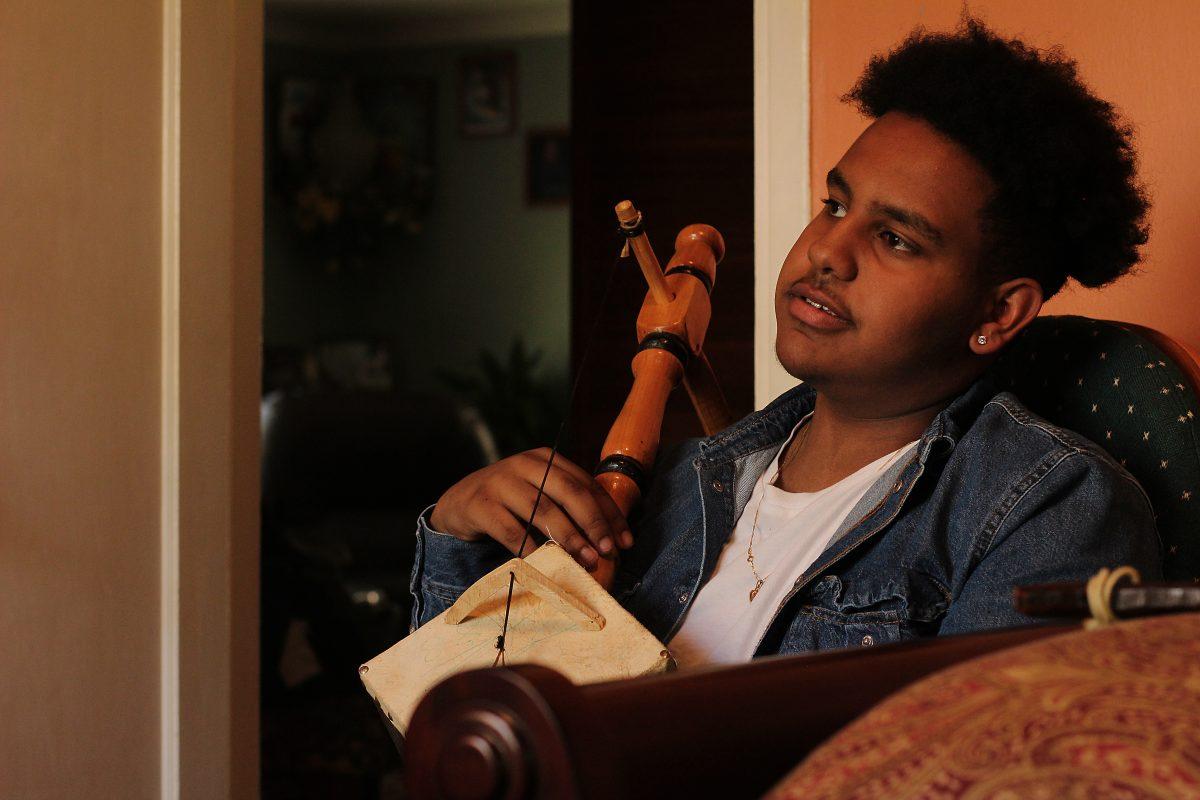
Samson Berhane
June in Ethiopia is hot, especially in the crowded streets of its capital, Addis Ababa, where Samson Berhane and his parents first stayed during a trip in the summer after his sophomore year. It was his first time in the country, but he recalls immediately feeling at home.
Berhane’s first trip to Ethiopia lasted nearly three months. Although the first part of his trip was spent in the capital, Berhane spent the majority of his time in his parents’ hometown, Wukro. There, people would speak to him in Tigrinya, and would welcome him into their homes as family. “Everybody knows (my parents) there, so when we went there … they had tea ready, they had beds set up,” says Berhane.
The youngest of six siblings, Samson Berhane is the only member of his family born in America. During a 1993 famine and Ethiopian civil war, Berhane’s parents moved to America with his five siblings.
For two weeks, Berhane’s mother and three of her children traveled through the forest from Ethiopia to Sudan. Two of Berhane’s brothers stayed with their grandmother in Ethiopia but eventually traveled to Sudan by bus. After spending two years in Sudan, Berhane’s family came to the United States.
While his wife and children were fleeing to Sudan, Berhane’s father, Berhane Michael, was forced to fight in the Coup D’etat movement. He was targeted and faced death by the government for being a teacher. Michael was given two options: fight with the Coup, or be killed by the government. After a year of fighting, Michael escaped to Sudan where he reunited with the rest of his family.
The adjustment from Ethiopia to the United States was difficult for Berhane’s family. Portland is majority white — a very different environment from Ethiopia. “My parents told me that, when they first came, it was terrible,” says Berhane.
Born and raised in the United States, Berhane recognizes that his childhood was much different than that of his siblings. “A lot of things were handed to me,” he says.
When Berhane was born, his family was financially stable. This was not the case for his siblings. “They didn’t have that much money at the time, they were living in an apartment, stuff like that,” he says of his family’s life in the United States before his birth. “Money wasn’t fruitful.”
Now, after living in Portland for 24 years, Berhane’s parents continue to stay involved in community activities — parties and events that bring together Ethiopian people living in Portland. Berhane sees two main reasons for these gatherings. “One is for celebration, and two is for talking about plans to help (Ethiopia) out in smaller ways,” he says. “They want you to not forget your culture.”
Celebrations in the community are large. “People come from across the United States,” says Berhane. “It probably hits close to 1000, 1500 people. Usually, they’re on either the New Years, or it will be a religious holiday, like St. Michael.”
Through these events, Berhane has been able to feel a strong sense of Ethiopian community within Portland. “I would say 80 percent of (maintaining a connection) is natural. And the other 20 percent is community,” he says. “Just meeting new people, seeing different views on stuff … you can see different aspects of Ethiopian life.”
Ethiopian culture values community, which Berhane sees in the way his parents welcome guests into his house. “It’s more family-oriented,” he says. His mother greets Berhane’s friends with hugs, and will go out of her way to make them feel comfortable in her home. Berhane sees this trait as not only a reflection of his parents’ kindness, but the values of Ethiopian culture as a whole.
Maintaining a connection to Ethiopian culture is important to Berhane. In his home, this comes easily.
“(My parents) always speak (Tigrinya) in the house,” he says. “Whenever my mom goes to church, she wears traditional clothing. I feel like it makes me more humble, and makes me have a broader perspective. I like to bring people in more, I’m more welcoming.”
. . .

Salvatore Estrada
Art covers the sunshine yellow walls of Salvatore Estrada’s house. Brought back from his mother’s home in Tanzania, animal skins and paintings hang alongside photographs of family members, and his father’s icon of Our Lady of Guadalupe. On a Friday afternoon in the fall, Estrada and his younger brother, Buddy George Estrada IV, sit in the living room, listening to music together.
Estrada and his two brothers were raised by his mother, Betsheba Estrada, and his father, George Louis Estrada III.
Despite being halfway across the globe, the impact of Betsheba Estrada’s Tanzanian childhood has been passed down to her children through language, food and community. “Just being with my mom, and hearing … stories of when she was a kid, stories about just her life, her grandparents,” says Estrada of things he feels have given him an understanding of her childhood.
Betsheba Estrada spent most of her childhood in Tanzania, surrounded by family and tradition. Before high school, she moved to America with her parents. Estrada’s grandfather was the ambassador of Tanzania, so Betsheba Estrada and her family lived in Washington D.C. when they first moved.
Though she was young when she immigrated to the United States, Betsheba Estrada knew she wanted to share her childhood traditions with her children.
From the time they were born, Betsheba Estrada made sure her sons kept a connection to their roots. She spoke to them in Swahili and planned visits with immediate family, who live in the United States. Estrada has been to Tanzania twice and sees his mom’s immediate family every summer.
For Estrada, seeing his mom’s relatives gives him a connection to his Tanzanian family that he has felt he needed. “If I didn’t see (my family) every summer I would have a lot of questions … but since I see them all the time, talk to them on the phone every now and then, I don’t feel separated at all,” he says.
When visiting Tanzania and attending family events with his mother, Estrada noticed how positive the people were. “We’re way more connected to family. On my mom’s side, they love family gatherings … Everyone was there, everyone was happy,” Estrada recalls of these events.
In Portland, a church run by Tanzanian nuns and priests allows Estrada’s mother to show Estrada his Tanzanian culture. Tanzanian people from Portland and Washington come to this church, all part of the small community that his mother is involved in. During the summer, Estrada helps clean the house the nuns live in.
But outside of the Church, it is difficult for Estrada and his mother to find spaces to immerse themselves in Tanzanian culture. Betsheba Estrada recognizes that it’s very uncommon to see other Tanzanians in Portland and that almost all of the Tanzanians she knows in Portland are from the Church.
When she does hear someone speaking Swahili in public, she always strikes up a conversation with them. “To find a black person that speaks Swahili is so rare,” says Betsheba Estrada. “It’s a really great feeling because you can identify with someone … it’s like a family even though they’re strangers.”
The lack of Tanzanians in Portland is one of the reasons why Betsheba Estrada puts such an emphasis on maintaining Tanzanian culture through the Church, family and food.
Walking into Estrada’s house, the scent of his mother’s cooking is almost always present. On both sides of his family, food is used to gather people together.
“I feel like (my mom) being from Africa, I’m open to all kinds of different types of culture, from eating food and of just living life,” says Estrada.
Estrada and his older brother, Paul Estrada, hope to continue the tradition. “We want to learn some of the recipes my mom knows, so we can just keep it going,” says Estrada.
Although the Tanzanian population in Portland is small, Estrada doesn’t let that get to him. “I take pride in being Tanzanian,” says Estrada. “It feels good. I like knowing where I came from and I like seeing the different ways (my family) used to live.”
. . .

Kunsel Lathsang
Filled with art and gifts sent over from Tibet through India, Kunsel Lathsang’s father’s shop has provided a space for recognition of Tibet in Portland. Walking through the shop, color and Tibetan design stand out, creating a place that displays Tibetan culture and tradition. “He probably had a sense of responsibility to show the Tibetan culture and heritage in Portland so people know about it,” says Lathsang of her father.
Lathsang’s father, Jampa Lathsang, moved to the United States in 1992 at the age of 24, after being chosen out of a raffle in India’s Tibetan community. A thousand Tibetan people were chosen, then sent around the world as part of the United States Immigration Act of 1990 — which allowed Tibetans in India and Nepal to move to the United States with guaranteed housing and employment. Along with 10 other people, Lathsang’s father was sent to Portland to live with a host family.
In 1994, Jampa Lathsang moved to Portland permanently with Lathsang’s mother, Tseten Lathsang.
Lathsang believes there are between 500 and 700 people active in the Tibetan community in Portland, as evidenced by the amount of people who show up at community events put on by the Northwest Tibetan Cultural Association (NWTCA), including celebrations of Tibetan New Years, the Dalai Lama’s birthday and Tibetan Uprising Day. Growing up, Lathsang was surrounded by this faction of Portland’s population because of her parents’ involvement with the NWTCA.
The NWTCA acts as a central hub for events in the Tibetan community. Functioning as it’s own entity, the Association is run by a board and president. As members of the Association, Lathsang’s parents belong to a group that helps plan events that revolve around community and provide a space for people to celebrate their culture in the company of those they can relate to.
Mostly parties, these events provide a space for celebration of Tibetan food, song and dance within Portland. For Lathsang, the community of young Tibetan Americans present within the NWTCA has given her a group of friends with whom she can relate, based on their shared heritage.
Through the NWTCA, Sunday school gave Lathsang another way to connect with her Tibetan heritage. “I did Tibetan class there, and you do Tibetan dance and singing,” says Lathsang. “When I danced, you would practice every Sunday, and when there was an event, the kids would usually dance and entertain people,” she recalls.
Though she stopped attending last year, she feels she hasn’t lost the connection, as many of the NWTCA’s events feature performances put on by the school.
Lathsang’s immersion in the Tibetan community from a young age allowed her to feel comfortable in her culture. “There’s a lot of immigrants here, so I don’t really feel excluded,” says Lathsang.
However, she remembers being met with ignorance when she was younger and spoke of her parent’s home country. Even now, Lathsang says, “Most things that happen, like the Dalai Lama coming to Portland, most people don’t know about it because Tibet is not publicized a lot.”
The lack of knowledge about Tibet that characterized the Portland of Lathsang’s early childhood led her parents to send her and her brothers to a Tibetan boarding school in India. Though the involvement with the NWTCA provided the family with a link to their roots within Portland, Lathsang’s parents felt it wasn’t enough.

Lathsang spent her entire third grade year attending the Tibetan Children Village School in Dharamsala, India. Because Lathsang had grown up surrounded by members of the NWTCA, the Tibetan school felt familiar. “The community was the same, but the environment was different,” Lathsang recalls about the school.
She met people who had very different backgrounds from her own, but with whom she could relate, because of their shared connection to Tibet. “It was like a really big family,” she says. “If I didn’t know Tibetan at all, and wasn’t immersed in the culture before I was there, it would (have been) difficult.”
After returning to Portland, Lathsang was thrown back into American life, starkly contrasted to how she lived in India. “There, everyday I would learn Tibetan, and be surrounded by Tibetans,” says Lathsang. “Here, I go to regular school everyday.”
This contrast is exemplified at Grant. “I sometimes feel different from people at school,” she says. “I’m not close with people at school like I am with my Tibetan friends, because I’ve known them since I was little.”
But the community she finds with NWTCA in Portland allows Lathsang to feel closer to her culture and the life she had lived in India. “Without it, I feel like I would lose who I was because I wouldn’t be able to connect with the Tibetan community,” she says.





























